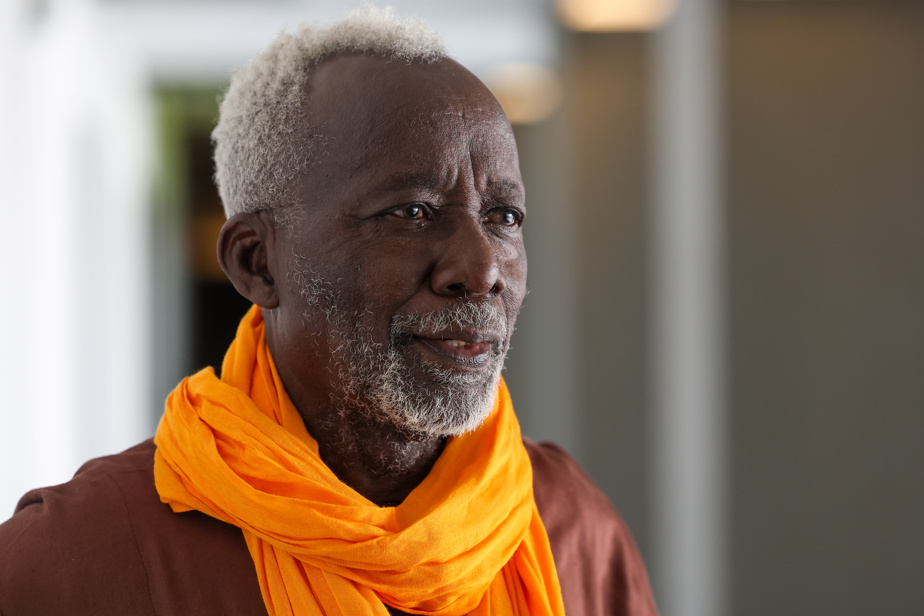Venerable Malian filmmaker Souleymane Cissé received a Special Lifetime Achievement Award from Vues d’Afrique on Thursday. He is in Montreal to accompany his daughter Fatou, who presents her documentary Tribute from a daughter to her father at the festival.
This distinction precedes the Carrosse d’Or which he will receive next month at the Cannes Film Festival. In recent years, a number of cinematographic events have highlighted his precious contribution to the seventh art. They come from different parts of the world… but not from Mali.
“I made this film because my father is not recognized enough in his country, admits Fatou Cissé in an interview. He has fought for over 50 years and it is others who reward him. »
The work of Souleymane Cissé remains important and significant. In the company of his Senegalese counterpart Ousmane Sembène (La noire de…, Mooladé), he allowed African cinema to exist internationally. He is the first filmmaker from black Africa to win an award at Cannes for a feature film (his magnificent Yeelen won the Jury Prize in 1987), and directors of the caliber of Martin Scorsese and Costa-Gavras are among his admirers .
“Cinema has always been fundamental in my life, confides in a soft voice Souleymane Cissé, who has just celebrated his 83rd birthday. My first encounter took place around the age of 4 or 5 with westerns. I was mad! When I was 14, I had a reserved seat at the cinema. In the evening, if I didn’t see a movie, it was not going well. »
A scholarship allowed him to learn his art for seven years in Moscow before returning to his country of origin to make a first feature film that would mark his life forever. In 1975, Den Muso, which deals with the unfortunate fate of a mute single mother rejected by everyone, suffered censorship and its creator was thrown in prison.
“It’s part of the obstacle course, exposes the main interested party without resentment. I had to go through it to understand that the job I chose was great and that it should not be let down. It is obviously a hurtful event that leaves traces. But these traces helped me to overcome the difficulties of making films in a country where nothing exists… I fought for three years so that the negatives were not burned. It would have destroyed me. It gave me the courage to face the challenges ahead. I believe in the future, that tomorrow man will stand tall. »
With opuses like Baara, Finyè and Yeelen, the filmmaker has developed an authentic and eminently recognizable style, as lyrical as it is poetic, which is interested in the notion of power while constantly putting the human being at the heart of its concerns and this , without misery. “I attended the premiere of Waati in 1995 and I didn’t know it was my father’s film,” laughs Fatou Cissé. For me, it was an American film. His filmography is not that of an African. She is different. »
His daughter dives with delight into the works of her father until becoming production manager of his most recent creations (O Ka, Min Yé). Then she directed Tribute from a Girl to Her Father, a personal, sensitive and critical documentary that draws fascinating parallels between her father’s career and the Malian seventh art. Not only does Souleymane Cissé transmit for future generations, but he also tries to develop structures in order to develop a national cinema.
“I hope the situation will improve,” says the director in a serious tone. To make a film, you need funding, and so far there is no proper funding for film. You have to fend for yourself to get money… Already there is no training as such in Mali that is related to cinema. »
If one of the most important filmmakers in the world does not have the means to create, it does not bode well for things to come.
“Despite everything my father did to promote Malian and African cinema, he is still not recognized in his own country,” recalls his daughter.
“I think Fatou has to be tolerant,” puts her father, who is preparing a documentary on Martin Scorsese, into perspective. When it is said that “No one is a prophet in his country”, it is a truth. But that’s not important. What is important is that we managed to do things. The movies stay. We have to build on that and drop the stories… We know that the day will come when our culture will take shape. »















